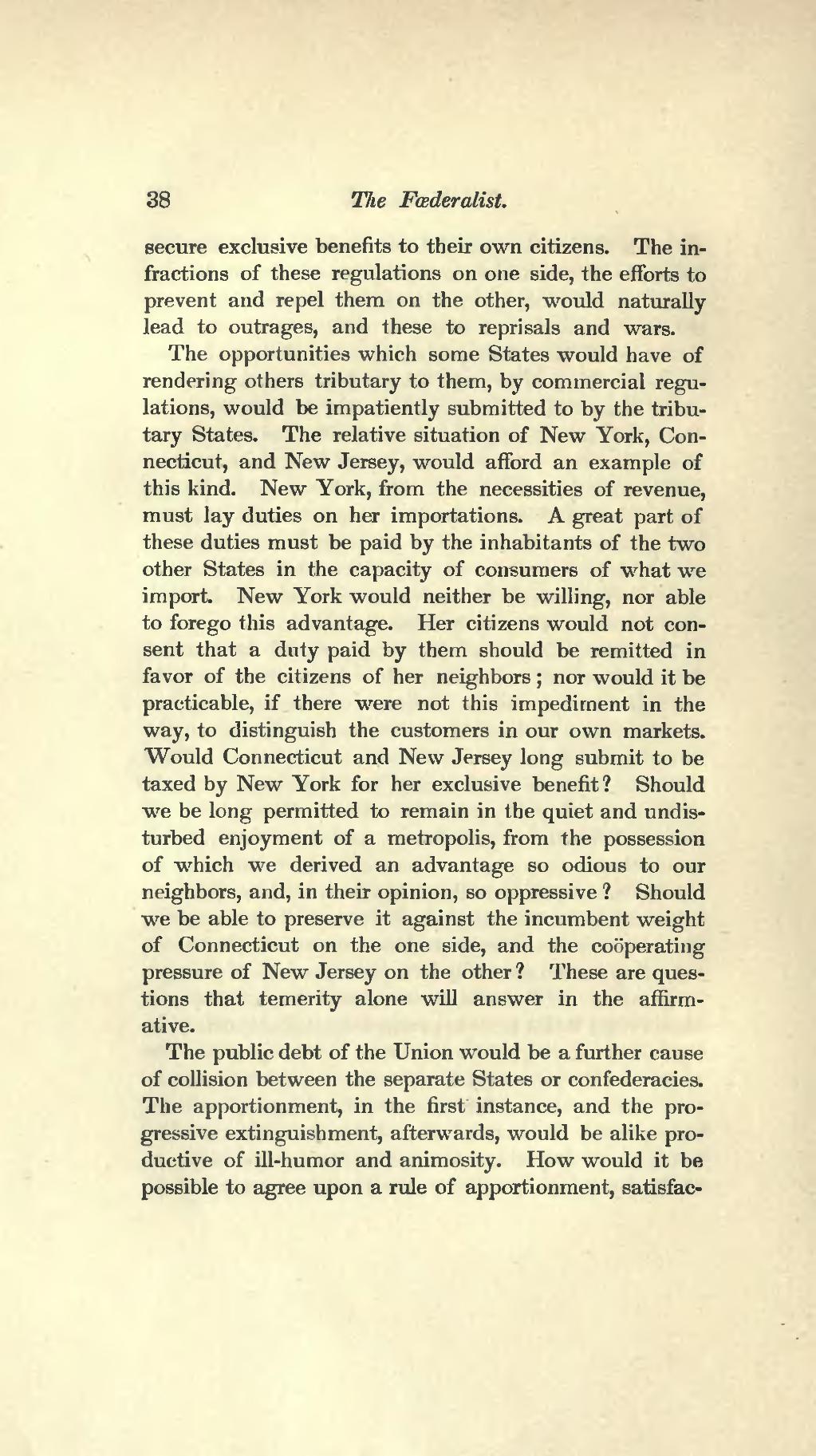secure exclusive benefits to their own citizens. The infractions of these regulations on one side, the efforts to prevent and repel them on the other, would naturally lead to outrages, and these to reprisals and wars.
The opportunities which some States would have of rendering others tributary to them, by commercial regulations, would be impatiently submitted to by the tributary States. The relative situation of New York, Connecticut, and New Jersey, would afford an example of this kind. New York, from the necessities of revenue, must lay duties on her importations. A great part of these duties must be paid by the inhabitants of the two other States in the capacity of consumers of what we import. New York would neither be willing, nor able to forego this advantage. Her citizens would not consent that a duty paid by them should be remitted in favor of the citizens of her neighbors; nor would it be practicable, if there were not this impediment in the way, to distinguish the customers in our own markets. Would Connecticut and New Jersey long submit to be taxed by New York for her exclusive benefit? Should we be long permitted to remain in the quiet and undisturbed enjoyment of a metropolis, from the possession of which we derived an advantage so odious to our neighbors, and, in their opinion, so oppressive? Should we be able to preserve it against the incumbent weight of Connecticut on the one side, and the coöperating pressure of New Jersey on the other? These are questions that temerity alone will answer in the affirmative.
The public debt of the Union would be a further cause of collision between the separate States or confederacies. The apportionment, in the first instance, and the progressive extinguishment, afterwards, would be alike productive of ill-humor and animosity. How would it be possible to agree upon a rule of apportionment, satisfac-
